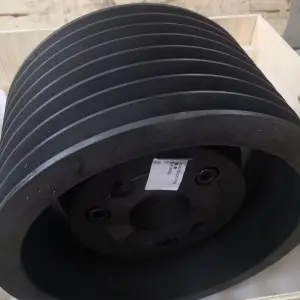In modern industrial equipment, the stable operation of crushers cannot be achieved without the precise coordination among various components. Among them, the motor and the conical sleeve, as key components, the matching of the thermal expansion coefficient of their materials is particularly crucial. Although this technology is not often mentioned, it plays an indispensable role in the performance and lifespan of equipment.
Thermal expansion is a natural phenomenon that occurs in materials when their temperature changes. When the equipment is in operation, the motor and the conical sleeve generate heat due to long-term work, resulting in slight changes in volume. If the coefficients of thermal expansion of the two materials differ significantly, with one expanding more and the other less, unnecessary internal stress may be generated. This kind of stress will gradually lead to loose fit, accelerated wear, and even cause equipment failure.
To solve this problem, engineers have made the thermal expansion coefficients of the motor and the conical sleeve as close as possible through precise calculations and material selection. In this way, when the temperature rises, the expansion degrees of the two tend to be consistent, maintaining the original close fit. This not only reduces the relative displacement between components but also significantly lowers the risk of deformation caused by thermal stress.
This matching process is not simple. It requires a deep understanding of materials science and also needs to take into account the temperature range in the actual working environment. Through repeated testing and optimization, it is ensured that the motor and the conical sleeve can still work in coordination under high-temperature or continuous operation conditions, avoiding the impact on overall performance due to uneven thermal expansion.
In addition, a good match of thermal expansion can also enhance energy efficiency. When components generate friction or resistance due to thermal expansion and contraction, the equipment needs to consume more power to maintain operation. By optimizing material matching, the crusher can achieve stable output with lower energy consumption and extend its service life.
In conclusion, although the matching of the thermal expansion coefficients between the motor and the conical sleeve is a minor technical aspect, it directly affects the reliability, durability and energy efficiency of the equipment. It is precisely these precise designs hidden in the details that jointly support the efficient and stable operation of industrial equipment.
Post time: Sep-12-2025

